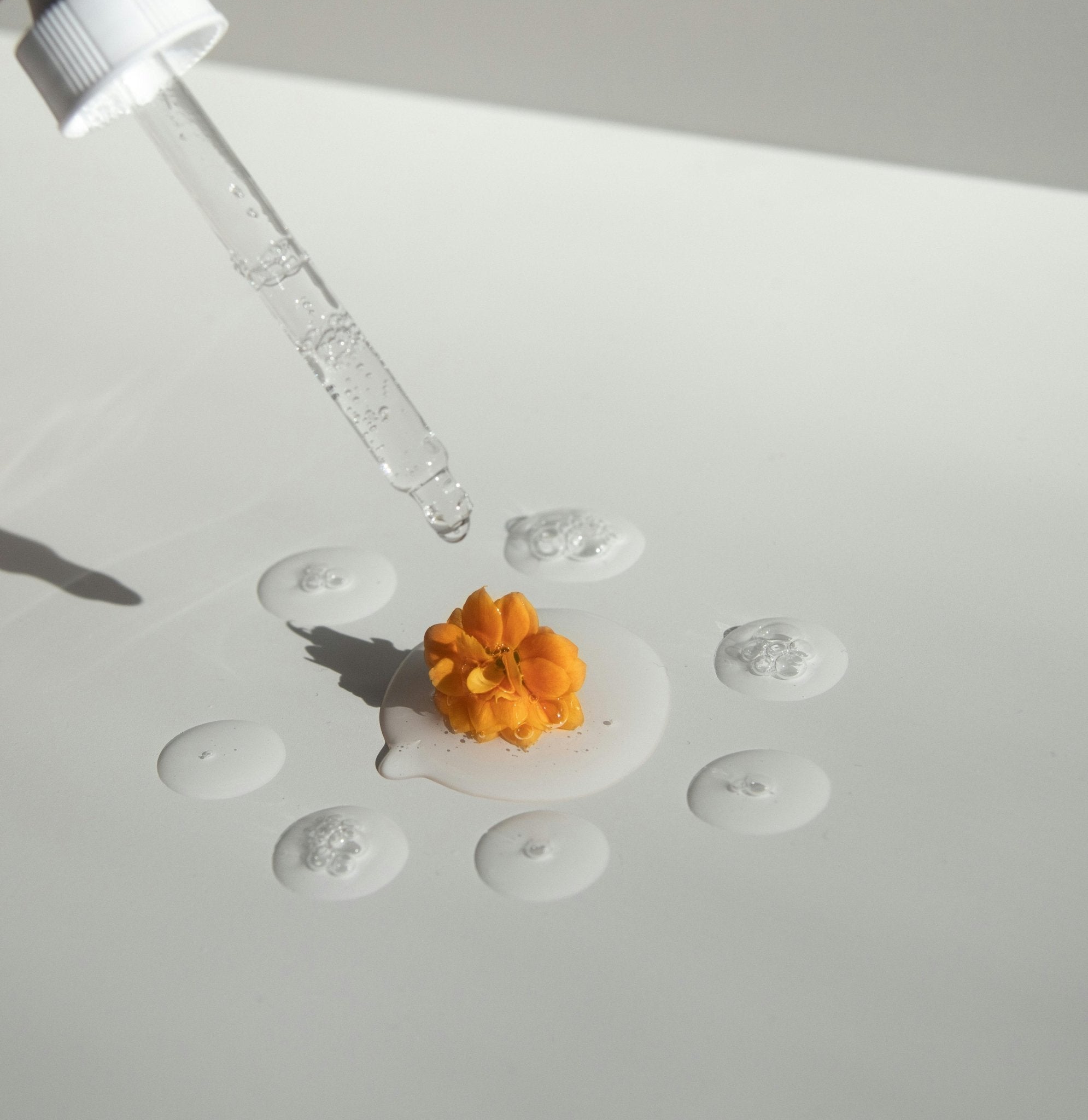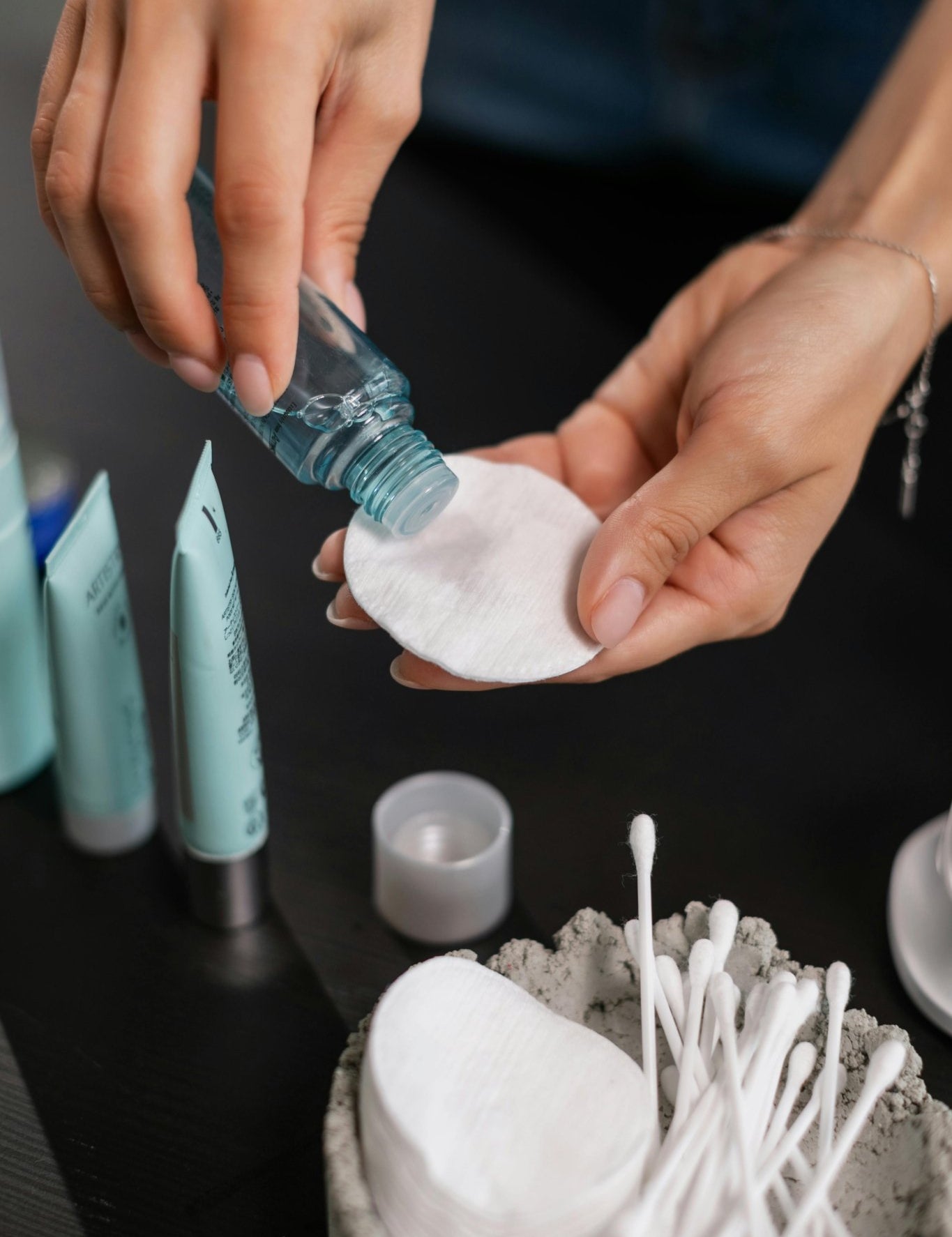Are Exfoliating Cleansers Good for Your Skin? Here’s What You Need to Know
Exfoliating cleansers have become a buzzword in the skincare world, with many people swearing by their ability to transform skin texture and leave it feeling smooth and refreshed. But are exfoliating cleansers good for your skin, or are they simply a trend? The truth is, exfoliation can be beneficial when done correctly. However, it’s important to understand what exfoliating does for your skin, how it works, and who should use it.
In this post, we’ll dive deep into exfoliating, the benefits of exfoliating cleansers, and how you can incorporate them into your skincare routine. If you're considering adding an exfoliating cleanser to your regimen, read on to find out everything you need to know!
What Exfoliating Does for Your Skin
Before we dive into the benefits of exfoliating cleansers, it’s crucial to understand what exfoliating actually does for your skin. Exfoliation is the process of removing dead skin cells from the surface of your skin. Our skin naturally sheds dead cells, but as we age or experience environmental stressors, the shedding process slows down. This leads to dull, uneven skin, clogged pores, and a build-up of surface debris.
Exfoliation helps speed up this natural renewal process by sloughing off dead skin cells, revealing the fresh, healthy skin underneath. There are two primary types of exfoliation: physical and chemical.
-
Physical Exfoliation: Involves the use of gritty or granular products (like scrubs or brushes) that physically scrub away dead skin cells. Exfoliating cleansers with physical exfoliants often contain tiny beads or micro-grains that help polish the skin.
-
Chemical Exfoliation: Uses acids (like AHAs or BHAs) to dissolve the bonds that hold dead skin cells together, allowing them to be removed without any scrubbing. Exfoliating cleansers with chemical exfoliants can provide a more even exfoliation.
Both types of exfoliation are effective, but they work differently and may suit different skin types. Now, let’s explore the benefits of exfoliating cleansers. Read more here.
The Benefits of Exfoliating Cleansers
Exfoliating cleansers are formulated to offer two key skincare benefits in one: cleansing and exfoliating. Here are some of the top benefits:
1. Improved Skin Texture
Exfoliating helps remove dead skin cells that can make your skin feel rough or uneven. By regularly using an exfoliating cleanser, you’ll notice a smoother texture. This can help make your skin feel softer and look more refined, which is especially beneficial for those struggling with uneven skin tone or rough patches.
2. Deeper Cleansing
Exfoliating cleansers work not only to clean the surface of your skin but also help remove built-up dirt, oil, and impurities that can clog pores. When you exfoliate, you’re giving your skin a deeper cleanse that ensures your pores are free from blockages, reducing the chances of breakouts or congestion.
3. Fights Acne
If you’re prone to acne, exfoliating can be a game changer. Dead skin cells that are left on the surface of your skin can mix with oil and clog pores, leading to acne. By exfoliating regularly, you can prevent this build-up, keeping your pores clean and reducing the likelihood of breakouts. Additionally, exfoliating can help to fade post-acne marks and improve skin clarity.
4. Promotes Radiance and Glow
Exfoliating helps to reveal fresh, healthy skin beneath the layer of dead cells. This process encourages cell turnover and can help promote a brighter, more radiant complexion. By incorporating an exfoliating cleanser into your routine, your skin will look naturally glowing and more vibrant.
5. Enhanced Absorption of Other Skincare Products
When dead skin cells are removed, your skin becomes more receptive to other products. Exfoliating helps create a clean surface for your skincare products to absorb more effectively. Whether you're applying serums, moisturizers, or treatment products, your skin will benefit from better absorption after exfoliation.
How Often Should You Use an Exfoliating Cleanser?
While exfoliating has numerous benefits, it’s important to remember that more is not always better. Over-exfoliating can damage your skin, leading to irritation, redness, and even sensitivity. The key to achieving the best results is finding the right balance for your skin type.
-
Sensitive Skin: If you have sensitive skin, it’s essential to be cautious when exfoliating. Exfoliating cleansers with gentler exfoliants like mild AHAs or products with smaller, finer beads may be more suitable for you. For sensitive skin, exfoliating 1-2 times a week should suffice.
-
Oily or Acne-Prone Skin: People with oily skin can benefit from more frequent exfoliation, but it’s still crucial to avoid overdoing it. Using an exfoliating cleanser 2-3 times a week will help keep your skin clear without causing irritation.
-
Dry or Combination Skin: Those with dry or combination skin should exfoliate once a week. Over-exfoliating can strip the skin of its natural oils and lead to dryness or sensitivity.
Choosing the Right Exfoliating Cleanser for Your Skin Type
Not all exfoliating cleansers are created equal. To get the most out of your exfoliating routine, it’s essential to choose the right product based on your skin type and concerns.
For Sensitive Skin
Look for exfoliating cleansers with gentle exfoliants such as lactic acid (an AHA) or jojoba beads that are less abrasive. Avoid harsh scrubs with large particles that can scratch and irritate your skin.
For Oily Skin
Exfoliating cleansers with salicylic acid (a BHA) are great for oily and acne-prone skin, as salicylic acid penetrates deep into the pores to remove oil and dead skin cells. Choose a cleanser that combines both exfoliation and oil control for the best results.
For Dry Skin
Opt for exfoliating cleansers that contain hydrating ingredients like hyaluronic acid and glycerin. These will help exfoliate while also ensuring your skin remains moisturized and plump.
What to Avoid When Using Exfoliating Cleansers
While exfoliating is a vital part of a skincare routine, there are a few things to be cautious of when using exfoliating cleansers:
-
Avoid Over-Exfoliation: As mentioned, exfoliating too frequently can damage the skin’s natural barrier. Stick to the recommended usage for your skin type.
-
Be Gentle: When applying an exfoliating cleanser, use gentle circular motions to avoid causing irritation. Avoid scrubbing too harshly.
-
Use Sunscreen: After exfoliating, your skin is more sensitive to the sun, so always apply a broad-spectrum SPF 30 or higher to protect your skin from harmful UV rays.
Conclusion: Are Exfoliating Cleansers Good for Your Skin?
The answer is yes—exfoliating cleansers are good for your skin when used correctly! They offer multiple benefits, including smoother skin, deeper cleansing, and enhanced radiance. However, as with any skincare step, it’s important to find a product that suits your skin type and to use it in moderation. Whether you’re looking to fight acne, improve skin texture, or enhance your skincare routine, an exfoliating cleanser could be the key to achieving healthy, glowing skin.








